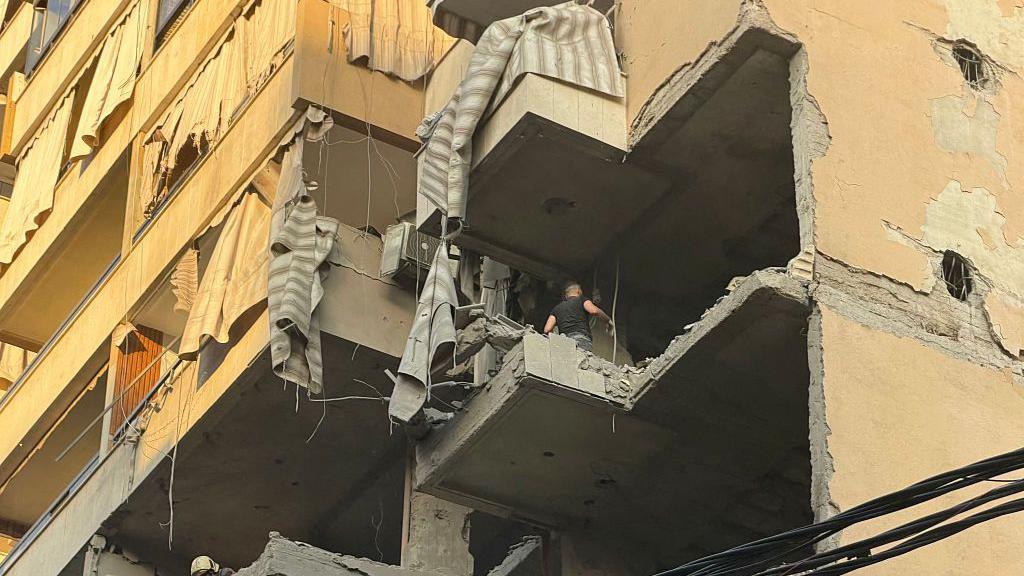In a strike conducted on the southern outskirts of Beirut, the Israeli military has reportedly killed a high-ranking member of Hezbollah, the militant group, despite existing ceasefire agreements.
The Israel Defense Forces identified the deceased as Haitham Ali al-Tabtabai, describing him as a long-standing figure within Hezbollah’s leadership, having held numerous key posts.
Lebanon’s Ministry of Public Health has stated that the strike, which targeted an apartment building in the densely populated Dahieh district, resulted in at least five fatalities and 28 injuries.
Hezbollah has confirmed the death of al-Tabtabai, asserting that Israel has crossed a “red line” by executing the operation.
This marks Israel’s first strike in the southern Beirut area in several months.
The incident occurs amidst escalating Israeli operations targeting individuals and entities allegedly associated with Hezbollah – the Shia Muslim group backed by Iran – despite a US and French-brokered ceasefire that took effect last November.
Israeli officials claim Hezbollah is actively working to rebuild its military capabilities, engaging in weapons smuggling into Lebanon, and increasing the production of explosive drones as alternatives to traditional rockets and missiles, leading to growing concerns of heightened conflict.
Israeli Prime Minister Benjamin Netanyahu stated following the strike, “Under my leadership, the State of Israel will not allow Hezbollah to rebuild its power, and we will not allow it to once again pose a threat to the State of Israel.”
He further expressed his expectation that the Lebanese government “fulfill its commitment to disarm Hezbollah.”
Lebanese President Joseph Aoun has called on the international community to exert pressure on Israel – which maintains a presence in at least five locations in southern Lebanon – to cease its attacks and withdraw from the country, deeming Israeli actions a violation of agreements intended to resolve 13 months of conflict.
The Lebanese government has pledged to disarm Hezbollah; however, the group has dismissed discussions regarding its weapons arsenal until Israel halts its attacks, completely withdraws from Lebanese territory, and releases Lebanese prisoners.
A Western diplomatic source, speaking anonymously, informed the BBC that Lebanese authorities are under pressure from Washington, with the current administration reportedly increasingly impatient with the perceived slow progress against Hezbollah, which is regarded as a terrorist organization by countries including the United States and the United Kingdom.
The latest series of confrontations between Israel and Hezbollah began after the Lebanese group initiated rocket fire at Israeli positions a day after the Hamas attacks of October 7, 2023. Hezbollah stated their actions were in solidarity with Palestinians in Gaza.
Lebanese authorities report that Israeli attacks have resulted in approximately 4,000 deaths in Lebanon, including numerous civilians, and have displaced over 1.2 million residents. Israeli authorities state that more than 80 soldiers and 47 civilians have been killed in the hostilities.
The US government imposed sanctions on al-Tabtabai in 2016, designating him as a terrorist, and has a $5 million reward for information leading to his capture.
The US described him as a key Hezbollah military leader who had previously commanded the group’s special forces in Syria and Yemen, noting his actions were part of a broader Hezbollah effort to provide training, resources, and personnel “in support of its destabilizing regional activities.”
The Shia Muslim group’s military wing is proscribed as a terrorist organisation by the EU.
The operation, which Israel says was aimed at Hezbollah, draws a furious response from the Lebanese government.
Unfil says the drone flew over a patrol in an “aggressive manner”, but the Israeli military says it was gathering intelligence and posed no threat.
Israel said it was targeting Hezbollah positions, while Lebanon’s PM called for pressure on Israel to stop attacks.
Compelling evidence to suggest Lebanese Shia leader Musa al-Sadr was killed in Libya is uncovered by BBC.

